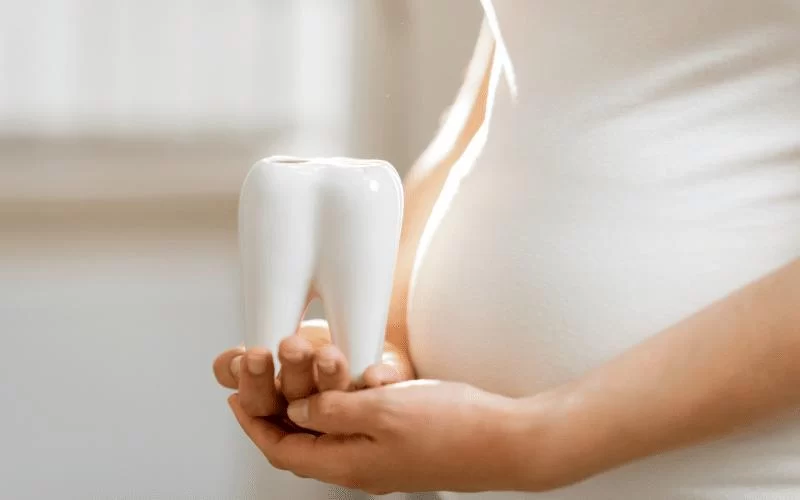
Why Dental Care During Pregnancy is Crucial for Both You and Your Baby
Pregnancy is a time of great change for your body, and your dental health should not be overlooked during this exciting time. While most women focus on their baby’s development, it’s just as important to take care of your own health—particularly your teeth and gums. I’ve always believed that maintaining good oral hygiene during pregnancy is not just about having a bright smile, but also about preventing serious health issues, such as cavities and gum disease. Today, I’ll share some practical tips that helped me and countless others avoid cavities during pregnancy and maintain healthy teeth throughout this special time.
1. The Impact of Pregnancy on Your Teeth
Pregnancy brings a host of hormonal changes that can affect your oral health. Increased levels of progesterone and estrogen can cause changes in your gums, making them more sensitive and prone to bleeding. This can lead to pregnancy gingivitis, which if left untreated, can cause more serious gum disease. But the most common concern among expectant mothers is the increased risk of cavities, or tooth decay. These changes, combined with cravings for sugary or acidic foods, can create a perfect storm for tooth decay. This was something I experienced firsthand during my pregnancy, so it became clear to me that I needed to take extra care of my teeth during this time.
Also, the nausea that often accompanies pregnancy can make it difficult to maintain a regular brushing routine. Vomiting can expose your teeth to stomach acid, which can erode enamel and make your teeth more vulnerable to cavities. That’s why I found it so important to take some extra precautions to avoid the possibility of cavities and protect my enamel during pregnancy.
2. How Hormonal Changes Contribute to Cavities During Pregnancy
During pregnancy, the increased blood flow and hormonal fluctuations can lead to a condition called pregnancy gingivitis, which causes swelling, redness, and bleeding of the gums. But that’s not all. Higher progesterone levels can also encourage plaque buildup on teeth. Plaque, which contains harmful bacteria, contributes to the development of cavities by producing acids that erode tooth enamel.
What I learned during my pregnancy is that these hormonal shifts make my mouth more vulnerable to the bacteria that cause tooth decay. I had to be extra diligent about brushing, flossing, and visiting my dentist for regular checkups to ensure that I didn’t develop cavities or other dental issues. After all, my oral health affected my overall health and the health of my baby.
3. Tips for Preventing Cavities During Pregnancy
So, how can you avoid cavities during pregnancy? There are several things you can do to protect your teeth while also making sure your baby’s health is a priority. Here’s what I did to keep my teeth healthy during pregnancy:
3.1 Maintain a Consistent Oral Hygiene Routine
One of the most important steps in preventing cavities during pregnancy is to brush your teeth at least twice a day with fluoride toothpaste. This helps remove plaque and prevent the buildup of harmful bacteria. I also made sure to floss daily, as this helps remove food particles and plaque from between teeth—areas that are difficult to reach with a toothbrush. I used a soft-bristled toothbrush to avoid irritating my sensitive gums.
3.2 Don’t Skip Your Dental Checkups
Many pregnant women avoid dental visits due to concerns about safety or discomfort. However, regular dental visits during pregnancy are crucial for catching any issues early on. I found that scheduling checkups every six months helped me stay on top of my oral health. My dentist made sure to check for cavities, gingivitis, and any signs of other dental problems. In some cases, it may even be beneficial to have a cleaning during pregnancy to ensure that your teeth and gums are as healthy as possible.
3.3 Avoid Sugary Snacks and Drinks
Cravings for sugary or acidic foods are a common part of pregnancy, but these foods can significantly increase your risk of cavities. The bacteria in your mouth feed on sugars and produce acids that break down tooth enamel, leading to cavities. I made an effort to limit my consumption of sweets, soda, and acidic juices during my pregnancy. When I did crave something sweet, I tried to choose healthier options, such as fruits, nuts, or yogurt, and always rinsed my mouth with water afterward.
3.4 Drink Water to Neutralize Acid
Hydration is important during pregnancy, and drinking water also helps protect your teeth. Water not only helps flush away food particles and bacteria from your mouth, but it also neutralizes acids that could damage tooth enamel. Whenever I experienced nausea or acid reflux, I made sure to drink plenty of water, which helped keep my mouth neutral and prevented the buildup of harmful acids.
3.5 Rinse Your Mouth After Vomiting
If you experience morning sickness or vomiting, it’s important to rinse your mouth immediately afterward. Vomit contains stomach acid that can erode tooth enamel. I always made sure to rinse my mouth with water or a fluoride mouthwash after vomiting to protect my teeth. However, I avoided brushing my teeth immediately after vomiting, as the acid can soften enamel, and brushing too soon can cause further damage. Instead, I waited about 30 minutes before brushing.
4. Healthy Pregnancy Habits That Support Oral Health
In addition to good dental hygiene, maintaining a healthy diet during pregnancy is another key factor in preventing cavities. What you eat plays a major role in your dental health. I made sure to include calcium-rich foods, such as dairy products, leafy greens, and fortified cereals, in my diet to help support the development of my baby’s teeth while also keeping my own teeth strong.
Vitamin D is also essential for healthy teeth, so I ensured I got plenty of sunlight or took a vitamin D supplement, as recommended by my doctor. Foods rich in vitamin C, like oranges and bell peppers, are important for gum health, and I made sure to incorporate those into my daily meals. Proper nutrition helped me avoid the development of cavities and also kept my gums in good condition throughout my pregnancy.
5. The Story of My Own Pregnancy Journey with Dental Care
When I was pregnant with my first child, I wasn’t aware of how much my dental health could be affected by pregnancy. I didn’t take my oral hygiene as seriously as I should have, and I found myself dealing with gum swelling and some early signs of cavities. Luckily, I was able to catch things early thanks to regular dental visits and some adjustments in my diet and hygiene routine. By the time I was pregnant with my second child, I was much more proactive, and I didn’t experience any issues with cavities or gum disease. This was largely due to the lessons I had learned from my first pregnancy and my commitment to maintaining healthy habits for both myself and my baby.
Now, as a mother, I know how important it is to take care of my teeth, especially during pregnancy. It’s a small effort that pays off in the long run, and it’s never too late to start taking care of your oral health. I encourage all expecting mothers to take the necessary steps to keep their smiles healthy and strong during pregnancy.







 Franklin Dental Center, PA4.0 (17 review)
Franklin Dental Center, PA4.0 (17 review) Depew Orthodontics5.0 (711 review)
Depew Orthodontics5.0 (711 review) Highland Dental Clinic: Dr. Robert Klein5.0 (7 review)
Highland Dental Clinic: Dr. Robert Klein5.0 (7 review) Dr. Dental: Dentistry & Braces4.0 (459 review)
Dr. Dental: Dentistry & Braces4.0 (459 review) Nu Image Surgical & Dental Implant Center4.0 (245 review)
Nu Image Surgical & Dental Implant Center4.0 (245 review) Triplett & Livingston Dental5.0 (964 review)
Triplett & Livingston Dental5.0 (964 review) The Importance of Oral Health Education During Pregnancy for a Healthy Pregnancy
The Importance of Oral Health Education During Pregnancy for a Healthy Pregnancy Best Tips for Brushing Your Teeth Properly for Healthy Gums: Essential Techniques for Oral Health
Best Tips for Brushing Your Teeth Properly for Healthy Gums: Essential Techniques for Oral Health Why Skipping Dental Checkups Can Lead to Bigger Oral Health Problems
Why Skipping Dental Checkups Can Lead to Bigger Oral Health Problems Advantages of Porcelain Dental Restorations
Advantages of Porcelain Dental Restorations How Can Diabetes Cause Tooth and Gum Problems? Preventing and Managing Oral Health Issues
How Can Diabetes Cause Tooth and Gum Problems? Preventing and Managing Oral Health Issues Healthy Habits for Promoting Good Oral Health and Hygiene: Tips for a Healthy Smile
Healthy Habits for Promoting Good Oral Health and Hygiene: Tips for a Healthy Smile